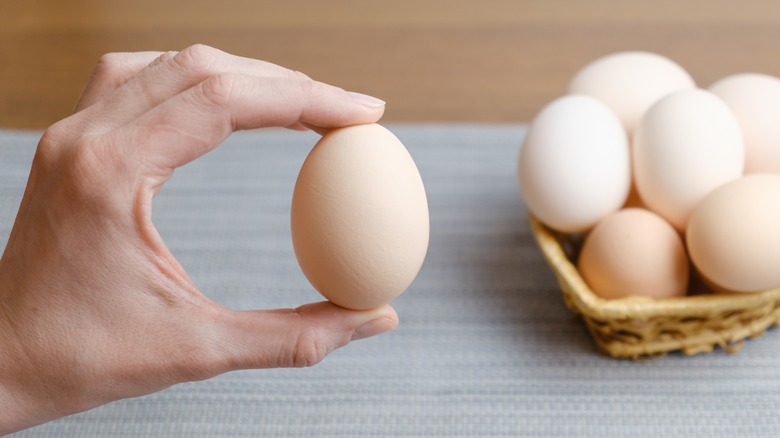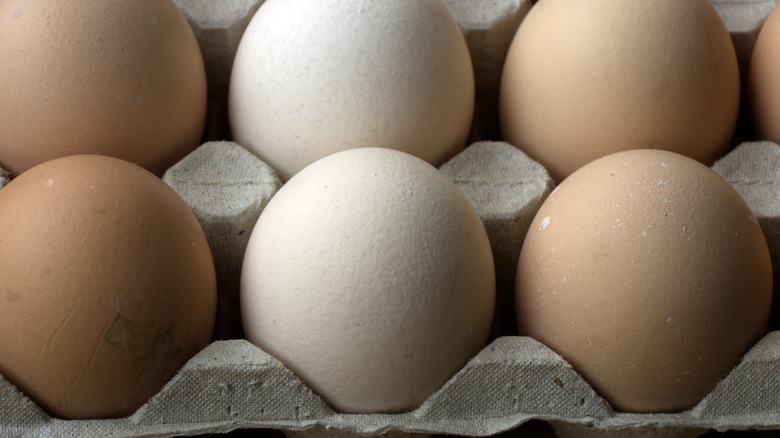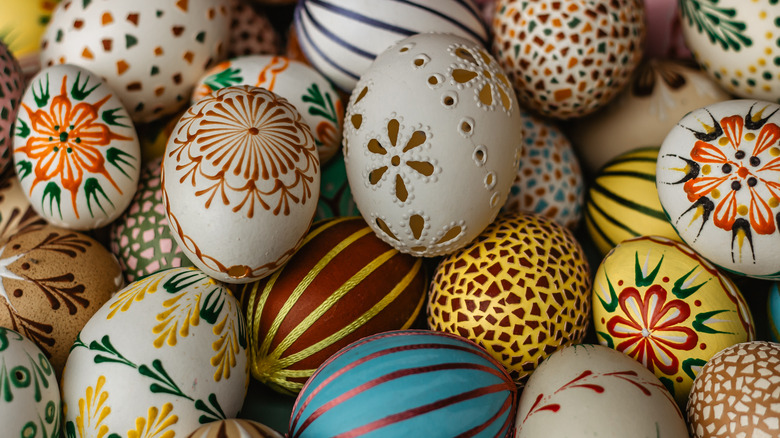The Unusual Cajun Tradition Of Easter Egg Pocking
When you hear Easter, you probably think about baskets full of your favorite candy, a mysterious bunny who hides eggs for children, and, if you follow the Christian faith, the resurrection of Jesus Christ on the third day. The most interesting thing about holidays is how differently they're celebrated from person to person. You probably have your own family traditions: a specific food cooked every Christmas, or a game played each Thanksgiving.
In Louisiana, a well-known Cajun tradition is Easter egg pocking. So, what exactly is pocking? Pelican State of Mind explains it as a contest to see which player has the strongest Easter egg. Like a lot of things in Louisiana, the word pocking comes from French word paques, which is a direct translation to Easter.
Interestingly enough, this Easter tradition wasn't always all fun and games; it has deeply religious roots and a promise of a fulfilling year ahead.
What is pocking?
If you want to try the tradition out, you won't have to worry about the mistakes everyone makes when cooking eggs. The first step of pocking is to choose an appropriate egg. Per The Town Talk, library director Celise Reech Harper states, "You select your egg and check it to make sure it's appropriate and that there are no small cracks in it. And that you think it's a good-looking egg." Harper was a key part of Rapides Parish Library's French Heritage Festival where pocking was explained and performed.
According to The Town Talk, after selecting an egg, a pocker will hold their egg pointy side up with only the face exposed. Then, the second pocker will tap the front of the egg with the tip of their own egg to check its strength. The game repeats itself several times until only one egg is remaining without any cracks, as explained by Pelican State of Mind. The player holding the last un-cracked egg is slated to have good luck the following year.
The history of pocking
Although this light-hearted game is obviously fun, its origins are based in Christian belief. A piece from Pelican State of Mind explains that pocking's origins can be traced back to ancient Greece. The game, which was originally called tsougrisma, which means "clashing" or "clinking together." Before the game begins, the eggs are dyed red to represent the blood of Christ, and when they crack, it symbolizes the resurrection.
You may be surprised to learn that eggs are used in many other traditions as well. According to Cape Gazette, eggs are used as symbolism for the Jewish Passover ritual. The article informs that a roasted egg represents grief and loss over the destruction of the Jerusalem Temple; the tougher the egg, the stronger the Jewish faith becomes. Additionally, people were engraving eggs as far back as 60,000 years ago, and remnants can be found in Egyptian tombs.
Next year, as families enjoy dying and hiding eggs, keep in mind all the different ways eggs can be used. Perhaps even give pocking a go to secure your luck into the new year while you celebrate with other traditions, like eating boiled eggs on Easter.


